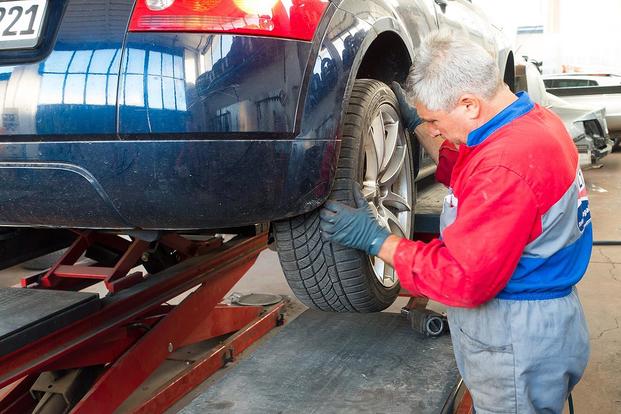For many automotive technicians, owning a service and repair facility is little more than a dream. For others, it is a reality. What does it take to open your own auto repair business? A great deal, as it turns out.
"Motivation is the critical factor," says Hugh Curley, manager of the business information center at the Small Business Administration (SBA). Still, numerous details and challenges can doom even the most passionate and skilled technician to entrepreneurial failure. Before you trade your timecard for a garage of your own, consider whether you're up for the following tasks.
Write a Business Plan
Making the leap from employee to business owner requires careful planning and lots of cash, says Jerry Schantz, executive director of the Alliance of Automotive Service Providers of Pennsylvania. Schantz estimates that it takes at least $50,000, plus the necessary tools and equipment, just to open the doors of a new shop in his state. "It's not an easy thing to do," he says. "When there is a need for financing, a business plan is essential," Curley says.
"But even if you don't need financing, you need to develop a business plan, and it's not done on the back of an envelope. You need to define your market, list your resources and do a SWOT analysis." A SWOT analysis lists the strengths, weaknesses, opportunities and threats you foresee for your business.
Make sure your business plan is realistic. "The cost of staying in business is increasing," says Carl Carlson, a field representative for AAA's Approved Auto Repair program. Insurance costs and medical coverage are proving to be particularly difficult for many small shops to pay for, he notes.
Tune Up Your People Skills
If you're starting your own business to get out from under your boss, think again. "When people talk about opening their own business to get away from something, red lights should go off," Curley says.
Being in business for yourself means that you will trade one boss for many. Every customer becomes your employer, and if the customers aren't happy, they won't come back. "Customers can be tough, but you need them," Curley says.
Start at Home
To get the feel of what it is like to work for themselves and deal directly with customers, many technicians start by working from their own garages at home on evenings and weekends. However, before you follow this path, consider that your current employer will certainly object if his customers suddenly become yours. In addition, there are legal hurdles to clear, including licensing, zoning regulations and insurance requirements.
Plan for the Long Run
Often, a new business is still losing money at the end of its first year. Before you start down the path to self-employment, make sure you have the resources to complete the journey. Otherwise, your new business could be one of the thousands that fail each year.
Consult Experts
You may be an excellent technician, but chances are you aren't a lawyer and accountant, too. So you'll likely need to consult with both before you make any commitments. A lawyer will help you comply with all governmental regulations as well as structure your business to protect your interests. An accountant will help you develop a business plan that will be acceptable to potential lenders or the Small Business Administration. An accountant will also help you establish the systems you'll need to control your expenses and keep track of your income.
You'll find additional help through the Service Corps of Retired Executives, an organization composed of retired businesspeople who are willing to share their experience with fledgling entrepreneurs. In many cases, they can mentor by email, says Curley. Also, you may connect with over 250,000 veterans in the Veteran Career Network working in companies, government agencies, career fields, industries or locations that interest you.
Prepare to Work Hard
Starting your own business will not make your life easier. Success in this field requires hard work and long hours. If that disappoints you, this isn't for you.











